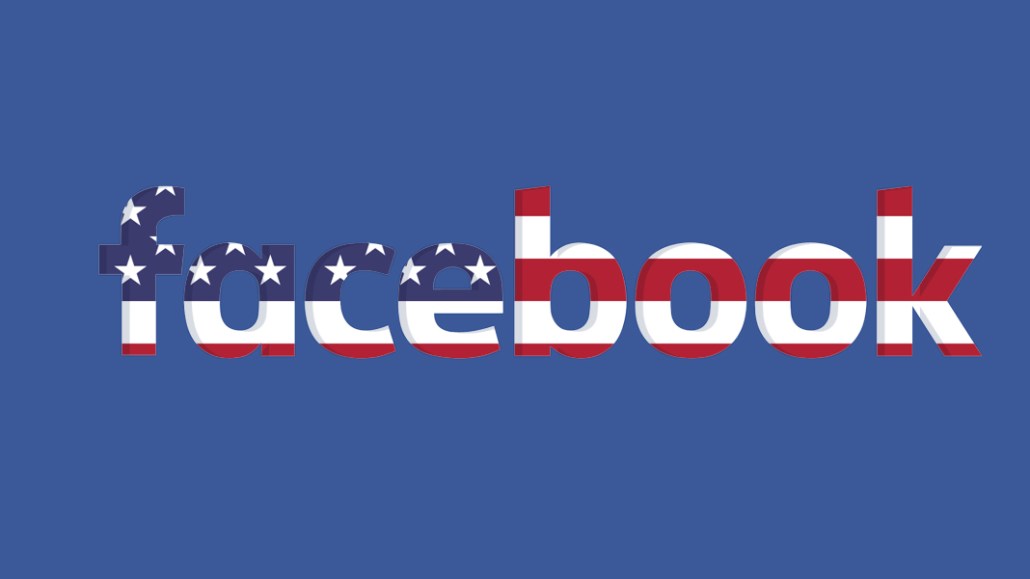Save 50% on a 3-month Digiday+ membership. Ends Dec 5.
5 things we learned from the Facebook and Twitter hearings

The tech platforms were back in Washington on Tuesday to answer senators’ questions on how their systems should and could change in the wake of election interference.
The U.S. Senate Select Committee on Intelligence had invited the leaders of Facebook, Google and Twitter to speak on foreign influence operations on social media. In place of Facebook CEO Mark Zuckerberg, who testified in April, was Facebook COO Sheryl Sandberg, alongside Twitter CEO Jack Dorsey. Google refused to send a C-suite executive and was represented by an empty seat (They sent a testimony anyway). The more than two-and-half-hour affair was a lot of talk — with Sen. Richard Burr poking fun of himself struggling to read on a small smartphone and Sen. Martin Heinrich mispronouncing Pokémon — a reminder of the cultural gulf that separates big tech and Washington — but here’s what we learned.
Questioning social media’s essence
Burr, chairman of the committee, kicked off the hearing by asking the witnesses to define social media.
Social media “enables you to share what you want to share when you want to share it without asking permission from everyone,” Sandberg said. She also emphasized the connections Facebook creates, specifically touting the rose of birthday fundraisers, the use of Safety Check and the growth of small businesses via the platform.
Dorsey defined social media as a “town square,” a term the company’s frequently used in the past to describe Twitter. He then added that “we” should be questioning the platform’s functions and what behaviors they encourage.
Twitter is considering labeling bots
Dorsey spoke repeatedly about the ways Twitter can restructure the platform. He mentioned that the follower count was emphasized on profile pages at launch and that was perhaps an error that they can now fix.
Sen. Mark Warner also asked if Twitter would consider labeling bots, which Dorsey said they are, in fact, exploring.
Ad position: web_incontent_pos1
“I do believe, first and foremost, anyone using Twitter has the right to more context,” Dorsey said.
Deceptive ads in the hot seat
While Zuckerberg had to answer questions like how does Facebook makes money — “Senator, we sell ads” — Sandberg got a more nuanced question on microtargeting within those ads, with Heinrich asking what Facebook does with ads that promote voter suppression. He mentioned ads from the 2016 presidential election that showed the wrong date for an election, an inaccurate polling place or saying people can vote by text.
Sandberg was quick to decry voter suppression, though no solutions were proposed.
“We feel very strongly about this. There is a long history of trying to suppress civil rights and voting rights. Discriminatory advertising has no place on Facebook,” Sandberg said.
Looking to fact-checkers, journalists to promote the truth
Facebook and Twitter both keep false news on their platforms and instead rely on other ways to promote the truth. That’s frustrating to publishers, senators and users, but follows the platforms’ mutual desire to not be “arbiters of truth,” as they’ve both said in the past.
Ad position: web_incontent_pos2
As Sandberg described during the hearing, Facebook relies on third-party fact-checkers to identify false news stories. Once they’re marked as false, Facebook’s algorithms suppress their reach. Anyone who shared or is about to share that story is shown the false label and also provided related articles that show other perspectives, or well, the truth. Sandberg first referred to those articles as “alternative facts” (Hello, Kellyanne Conway).
Dorsey, on the other hand, touted the power of journalists on the platform.
Journalists “often, with a high degree of velocity, call out misinformation,” said Dorsey, adding that Twitter could do more to provide more tools and resources to journalists.
A push for data portability
Several senators questioned users’ abilities to truly understand and own their data. Warner, for example, asked Sandberg if Facebook could put a value on the information they gather from users, individually.
Sandberg said the user own their data and emphasized that Facebook does not sell their data to advertisers. But while Dorsey said they don’t compete on identifying election interference, it’s clear that data is still their currency.
“As much as I’d love it, they won’t allow for data portability that easily. That will have to be a forced regulation. The data is the real money maker. They wouldn’t want to share that with competitors,” Bari Williams, a former employee of Facebook and StubHub, tweeted.
Still, in his closing remarks, Warner suggested more conversation around valuing and sharing data.
More in Marketing

Ulta, Best Buy and Adidas dominate AI holiday shopping mentions
The brands that are seeing the biggest boost from this shift in consumer behavior are some of the biggest retailers.

U.K. retailer Boots leads brand efforts to invest in ad creative’s data layer
For media dollars to make an impact, brands need ad creative that actually hits. More CMOs are investing in pre- and post-flight measurement.
Ad position: web_bfu



